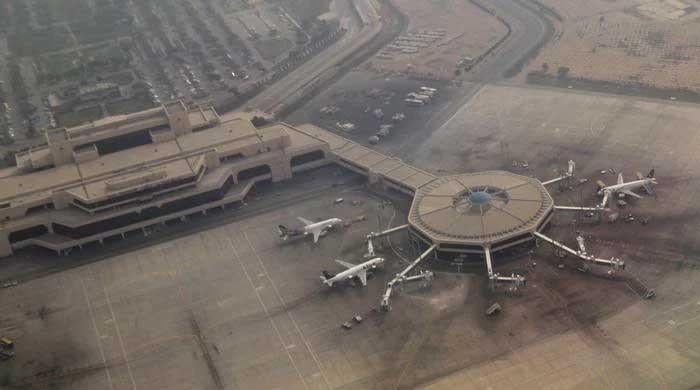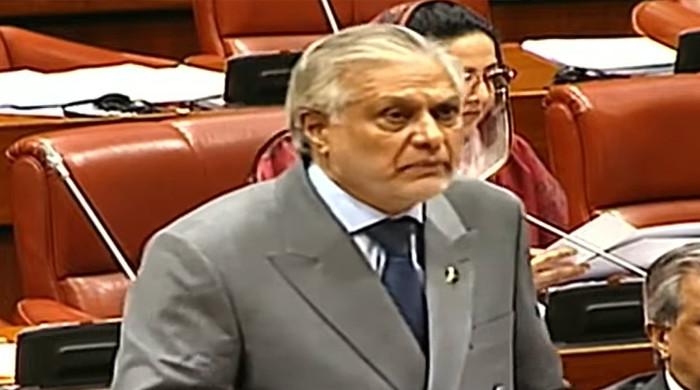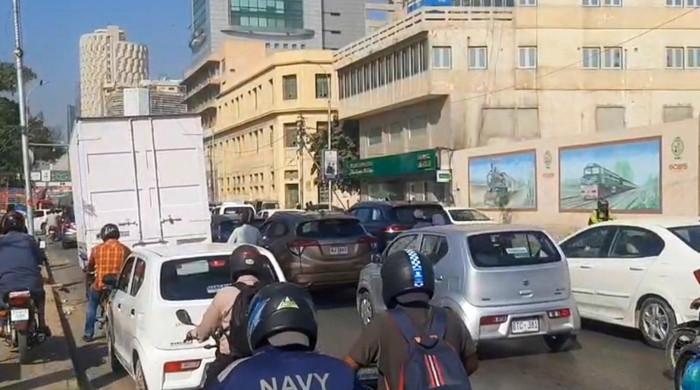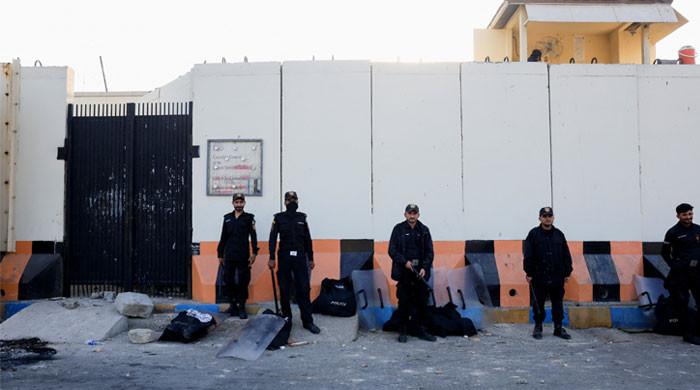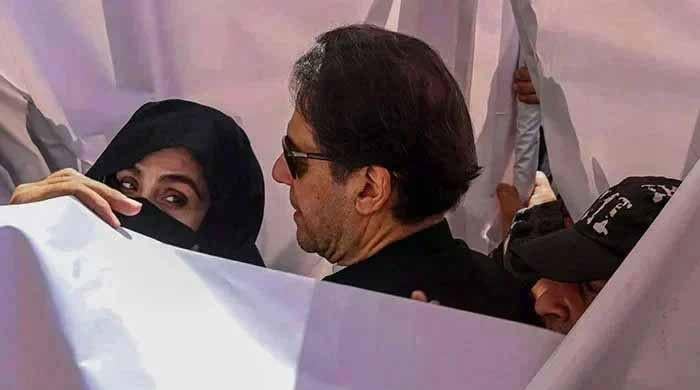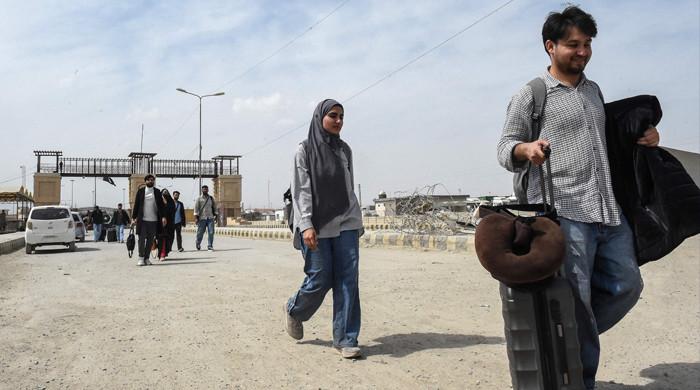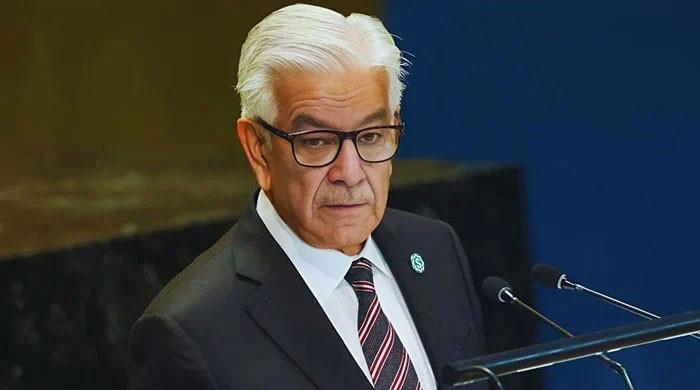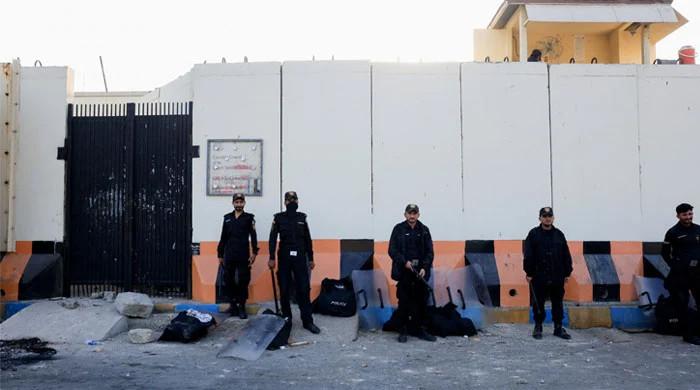A chronology of past caretaker prime ministers
Pakistan is about to appoint its eighth caretaker prime minister to officiate a caretaker setup
August 10, 2023
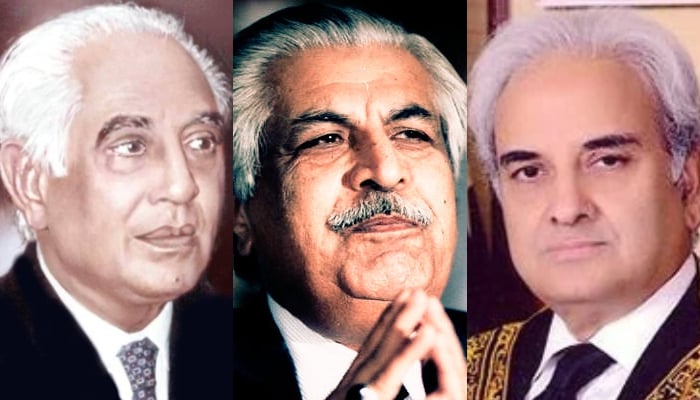
With the National Assembly standing dissolved, Pakistan is about to appoint its eighth caretaker prime minister to officiate a caretaker setup.
The former government concluded its constitutional term prematurely, by dissolving the 15th NA on Wednesday night, with the approval of President Arif Alvi.
However, no development has yet taken place in regard to the finalisation of a name for the coveted post despite weeks of consultations between the members of the outgoing government.
It may be noted that the Constitution bestows only limited and certain powers to the caretaker prime minister, one of which is the responsibility to hold impartial and fair elections in the country.
Seven people have served the post of caretaker prime minister in Pakistan's history.
Let's have a look at the past caretakers.
Ghulam Mustafa Jatoi (Aug-Nov 1990)
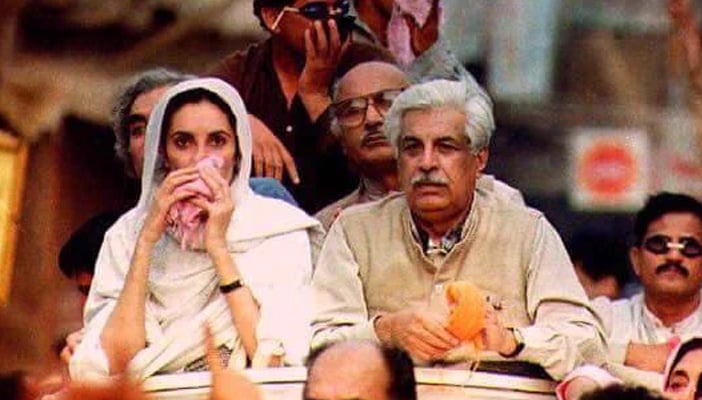
Jatoi was the first one to be appointed as the caretaker prime minister in the history of Pakistan. He was the leader of the opposition at the time of his appointment in August 1990.
Jatoi was appointed by then-president Ghulam Ishaq Khan after the dissolution of the National Assembly, resulting in the removal of the then-prime minister Benazir Bhutto on charges of corruption.
He remained in office for over three months, before handing over the reins to Pakistan Muslim League-Nawaz (PML-N) supremo Nawaz Sharif on November 6, 1990.
Balakh Sher Mazari (Apr-May 1993)
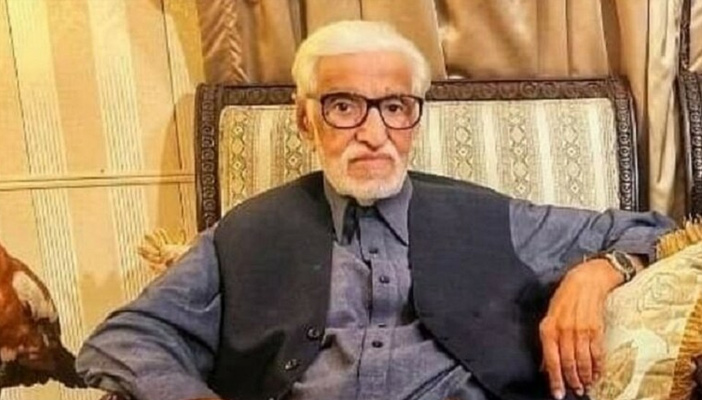
The second caretaker prime minister in Pakistan's history was Balakh Sher Mazari, who was placed in the office of the prime minister in 1993, less than three years after the general elections of 1990.
Then-president Ishaq Khan once again violated the spirit of the system by dissolving the NA prematurely, ousting the then-prime minister Nawaz Sharif on April 18, 1993.
Moinuddin Ahmed Qureshi (Jul-Oct 1993)
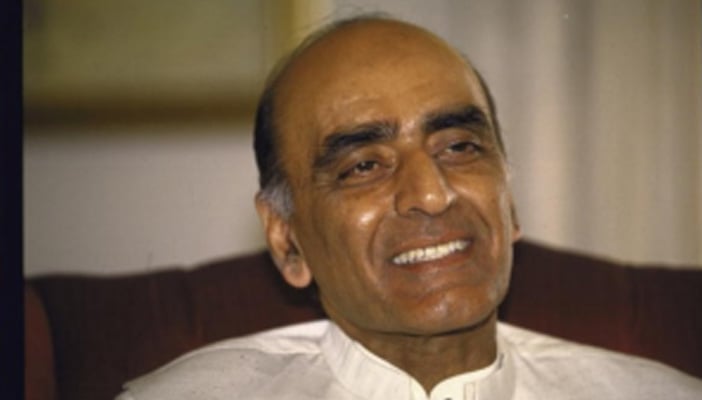
Under an army-brokered agreement, Nawaz and then-president president Ishaq Khan tendered resignations from their respective posts in July 1993.
Before signing off, Khan appointed Pakistani-American economist Moeenuddin Ahmed Qureshi as the third caretaker prime minister on July 18, 1993.
He jointly oversaw the 1993 polls with the army that marked the return of the Benazir-led PPP to power.
Malik Meraj Khalid (Nov 1996-Feb 1997)
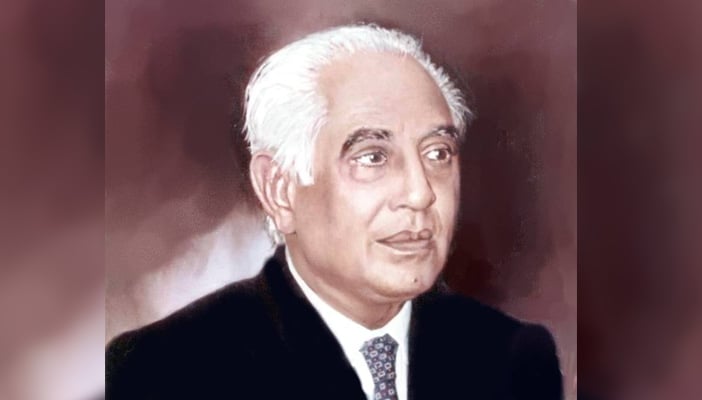
Benazir's government witnessed exactly the same fate as six years ago and former NA speaker Malik Meraj Khalid took charge as the fourth caretaker prime minister after his appointment by then-president Farooq Leghari in November 1996.
He served the post for nearly three months.
Khalid was succeeded by Nawaz, who again assumed the office of the prime minister after an overwhelming victory in the 1997 parliamentary elections.
Muhammad Mian Soomro (Nov 2007-Mar 2008)
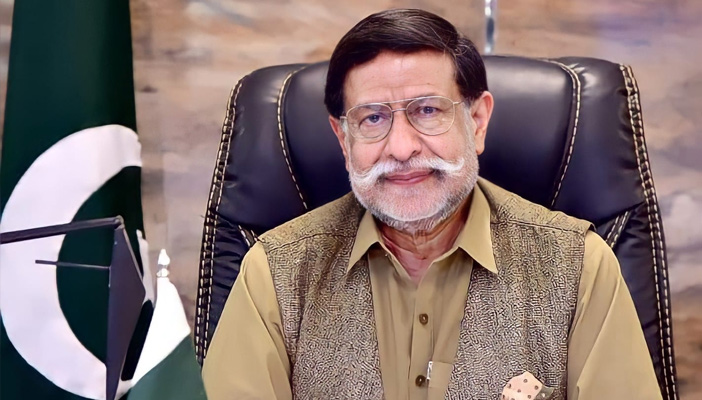
It was until November 2007 that a caretaker prime minister was appointed as Pakistan saw almost a decade-long dictatorship under General (retd) Pervez Musharraf.
Shaukat Aziz of the Musharraf-backed Pakistan Muslim League-Quaid (PML-N) was the prime minister when Musharraf ordered then-Senate chairman Mohammad Mian Soomro to officiate the caretaker setup following the PML-Q-led government's completion of the term.
After serving the post for nearly four months, Soomro transfered the power to PPP's Yousaf Raza Gillani as the democratically elected prime minister in the 2008 general elections.
Mir Hazar Khan Khoso (Mar-Jun 2013)
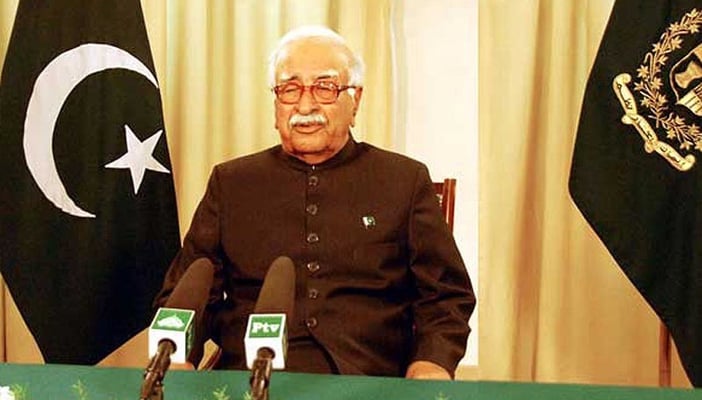
Mir Hazar Khan Khoso was appointed the sixth caretaker prime minister in March 2013 after the end of the PML-N-led NA term under the then-prime minister Raja Parvez Ashraf.
It was the first time that a caretaker premier was appointed by the Election Commission of Pakistan (ECP) under Article 224A as the prime minister and leader of the opposition failed to reach a consensus on one candidate.
He remained in office for over two months and transferred the power to Nawaz as prime minister after the general elections in June 2013.
Nasir-ul-Mulk (June-Aug 2018)
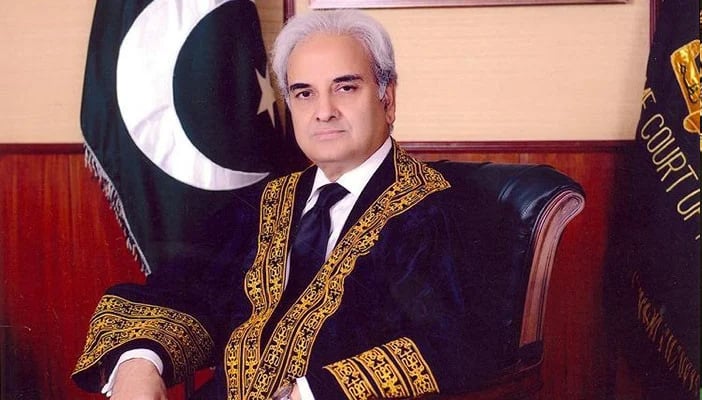
After the dissolution of the NA on May 31, 2018, and the end constitutional term with Khaqan Abbasi as the prime minister, former chief justice Nasir-ul-Mulk took charge as the last acting head of the government.
He served for over two months.
After the 2018 general elections, Pakistan Tehreek-e-Insaf emerged victorious and the party's chairman, Imran Khan, assumed the office of the prime minister.




